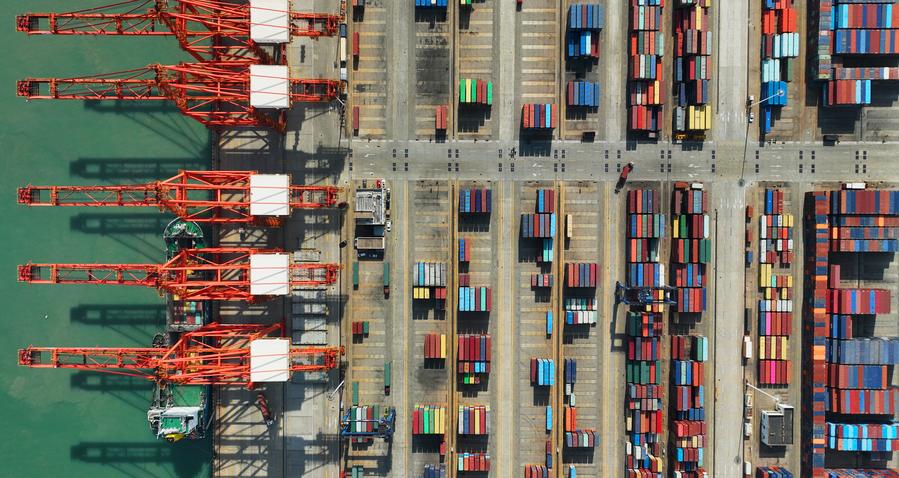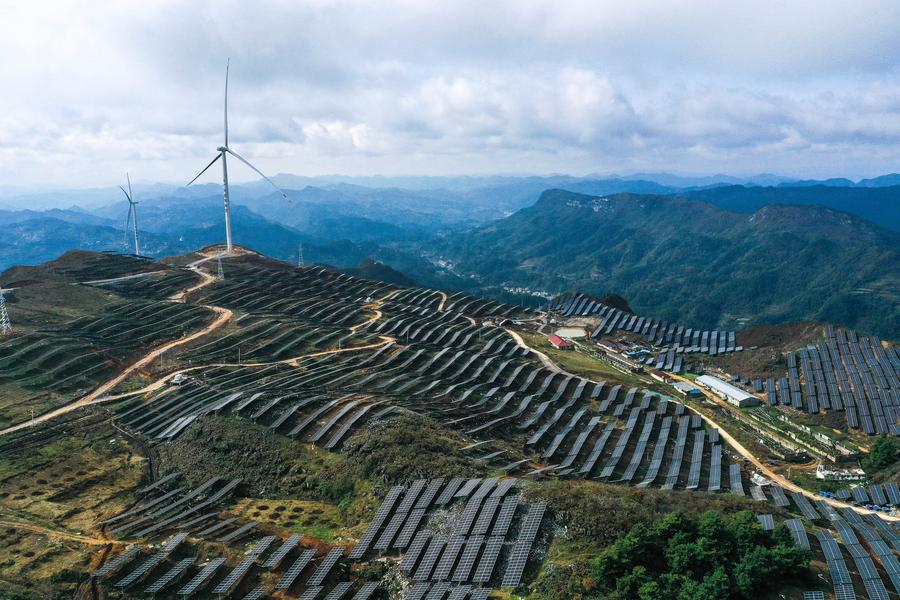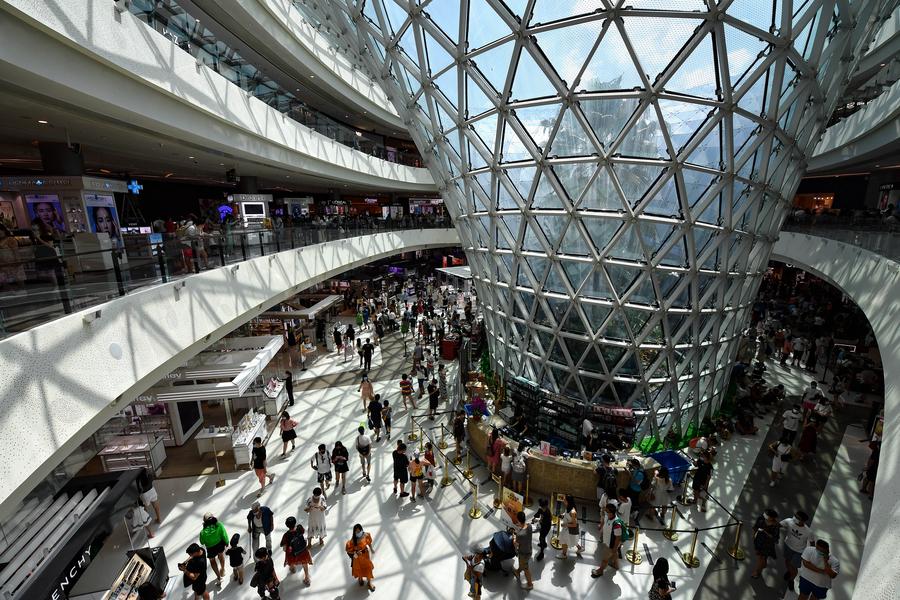Interview: China continues to promote global growth, says CEO of Australian iron ore giant

This aerial photo taken on May 9, 2023 shows the container terminal at Lianyungang Port, east China's Jiangsu Province. (Photo by Geng Yuhe/Xinhua)
The prospects for China's continued growth remain bright, driven by domestic consumption, technological innovation and the green energy transition, said Dino Otranto, CEO of Fortescue Metals Group Ltd.
As for the RCEP, Otranto believes the initiative will deliver significant opportunities for China and Australia as well as further integrate regional markets, lower trade barriers and boost exports in the region.
SYDNEY, March 28 (Xinhua) -- As a key player in the global economy, China will continue to promote global growth and technological innovation in the years to come, the CEO of an Australian iron ore giant has said.
In a recent interview with Xinhua, Dino Otranto, CEO of Fortescue Metals Group Ltd., said that China is "well placed" to manage the process of economic transition toward high-quality development.
The prospects for China's continued growth remain bright, driven by domestic consumption, technological innovation and the green energy transition, he said.

This aerial photo taken on Nov. 16, 2023 shows the Dingdongpo wind power-photovoltaic project in Shiqian County of Tongren City, southwest China's Guizhou Province. (Xinhua/Yang Wenbin)
Speaking of the buzzword "new quality productive forces," Otranto said that China is pursuing a green transition and it is leading the world in sustainable energy development through its "exponential rollout" of wind and solar power. He added that Fortescue sees it as an opportunity to enhance cooperation with Chinese partners.
"Already, we are exploring a range of options to reduce emissions in the steel value chain, including through partnerships with Chinese suppliers, customers and research institutes," he said.
The entrepreneur acknowledged that Asia remains one of the fastest-growing regions, with countries like China and Southeast Asian nations experiencing significant growth rates, presenting businesses with opportunities for investment, trade and market expansion, especially in sectors such as technology, consumer goods and services.
"Asia has become a major destination for cross-border capital investment, driven by the region's rapid economic growth, emerging markets and investment-friendly policies," said Otranto.
There is a growing trend among Asian countries to invest in each other, and this diversification of investment sources strengthens regional economic ties and resilience, he said.
Further, policy reforms that streamline processes and provide incentives, as well as continued infrastructure development will enhance Asia's attractiveness for foreign investment, he added.
As for the Regional Comprehensive Economic Partnership (RCEP), Otranto believes the initiative will deliver significant opportunities for China and Australia as well as further integrate regional markets, lower trade barriers and boost exports in the region.
Entering into force on Jan. 1, 2022, RCEP comprises 15 Asian-Pacific countries including 10 ASEAN member states -- Brunei, Cambodia, Indonesia, Laos, Malaysia, Myanmar, the Philippines, Singapore, Thailand and Vietnam -- and their five trading partners, namely China, Japan, South Korea, Australia and New Zealand.
"This (the RCEP) will unlock the full potential of regional cooperation and integration which will drive sustainable economic growth and prosperity across the Asia-Pacific region," he said.

Tourists visit a duty-free shopping mall in Sanya, south China's Hainan Province, Oct. 5, 2020. (Xinhua/Guo Cheng)
- China's manufacturing powerhouse sees foreign trade growth in Q1
- China's Heilongjiang sees foreign trade of goods up 10.3 pct in Q1
- China-Mongolia border port handles 600,000 travelers
- New Zealand's trade relationship with China remains strong: minister
- NZ-China expo roadshow highlights trade opportunities

